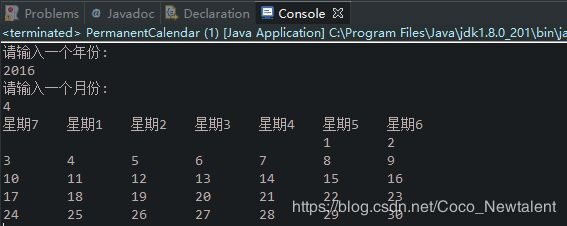- 这个桌面日历真不错 笔记 提醒 生日记录 打卡 翻译都有 真的太方便了!
C盘清理
实用软件笔记待办日历桌面日历电脑日历生日提醒记事本
这个桌面日历真不错笔记提醒生日记录打卡翻译都有真的太方便了!日历产品非常的多,如何选择一个合适自己的桌面日历,这个很重要,今天小编给大家介绍这个芝麻日历,一起看下它有些什么功能,是不是你需要的。1、美观,一个实用的桌面日历,不仅要界面美观,还要功能强大;芝麻日历(https://rili.zhimasoft.cn/?abiw)芝麻日历下载实用的桌面日历万年历农历查询桌面便签/备忘录芝麻日历软件官方
- 今日头条极速版好友邀请码是多少(含2024邀请码填写步骤)亲测(惭确)
桃朵十三
今日头条极速版app。这款软件主要服务于当地人,让你轻松掌握本地新闻和广播电视信息,还能看到国内其他资讯内容。今日头条极速版邀请码是【1599762938】【1069580711】和【1451455648】今日头条极速版邀请码1069580711除了这些,它还提供了许多便民服务,比如票务购买、航班预订、快递查询、万年历和违章查询等。如果你对这款软件感兴趣,可以免费下载体验。今日头条极速版app还有
- 软媒魔方 6.2.1.0 正式版(绿色版)
海韵互联
软媒魔方支持64位和32位的所有主流Windows系统,是一款系统增强套装,自动化、智能化解决各种电脑问题。软件内置20余款强大、绿色化的知名组件,清理、美化、桌面增强、系统雷达、通知区万年历、优化加速、安全守护、软件管家、电脑医生、虚拟光驱、U盘装机等等。魔方是目前世界范围内执行效率最高的一款顶级综合型系统软件。软件下载软媒魔方6.2.1.0正式版(绿色版)
- 2023-04-10
余則徐
达视天津4月10日天气情况天气好朋友们,大家早上好!今天是2023年4月10日星期一,农历闰二月二十;当前时间是5:36,这个时间的干支历法表示是癸卯年丙辰月戊戌日乙卯时。不知道大家是不是看出来了:从清明节4月5号、农历闰二月十五那天的9:14交节开始,网络中万年历上面的月份就突然从乙卯月变成了丙辰月啦;当然,从那时候开始一直到今天,我们的干支纪元法就都以丙辰月来称呼我们的当前月份啦。这件事情有什
- 名表中的“劳斯莱斯”价值一个亿!
壹表行咨询
HenryGraves是美国纽约一位对于钟表有着特别偏好的银行家,他不仅自己喜欢表,而且将这一爱好传给了家人,如今在不少钟表拍卖会上,依然能够看到一些由Graves家族特别定制的百达翡丽(PatekPhilippe)表,其功能从最为复杂的万年历表到普通的计时表都有。其中,最著名的当然就是是极端复杂的HenryGraves怀表。这枚怀表首次被拍卖是于1999年在纽约的苏富比拍卖会上,最终以1100万
- 同时册立多位皇后:独占文字,历史上有哪些禁革名字的奇人怪事?
史遇春之尘境心影录
作者:史遇春北周静帝(宇文衍,后改名宇文阐)大象元年(公元579年)农历二月三十日(辛卯),北周宣帝宇文赟下诏,诏旨大意为:洛阳旧都,现在已经修复,凡是原来迁徙的民户,听其意愿,可还归洛州。此外,如果还有人愿意去洛阳居住,也听任其前往。由此可见,那时的人口流动,并非铁板一块,也会有所调整。本年夏,农历四月初一日(史书作壬戌朔,万年历四月朔日为辛酉),有司上奏,说是有日蚀出现。古人敬天,凡遇蚀相,皆
- C语言万年历设计制作
老花眼猫
C语言万年历设计制作编制万年历的要素:农历公历对照,显示星期,农历干支年,当年生肖,国定节假日,寒天九九,暑日三伏,入梅出梅,节气时间,生辰八字等。二种显示方式:一种是日历当天或所选日显示(生辰八字查询),另一种是类似台历的月历显示。农历算法采用数据数组方法,200年日历数据量不大。程序启动时读入即可。数据结构18位,如daList[2000]=“110010010110000205”;前12位表
- 【觉悟传统文化《梅花易数》(2)】——起卦有方
兴时态_198812
【觉悟传统文化《梅花易数》(2)】——起卦有方一、时间起卦以农历年月日数总和除以八,以余数为卦数得上卦;以年月日时数总和除以八,以余数为卦数得下卦,再以年月日时数总和除以六,以余数为动爻。例:公历2001年9月19日上午10点钟起卦,先把公历的年月日和时间换成阴历,查万年历为:辛巳年八月初三,上午10点为巳时。时辰和年数取用地支的序数,序数是子为1、丑为2······亥为12。上卦:年数+月数+日
- 万年历(遍历求天数(也可用调用蔡勒公式))
chenWangi
算法linux运维c语言
运行结果:经常万年历的算法题是给一个年限范围的(例如:1940-2040)所以我们在求解时候可以根据初始年份来计算天数计算。#define_CRT_SECURE_NO_WARNINGS这是visualstdio屏蔽警告的代码。接下来就是代码的头文件:#define_CRT_SECURE_NO_WARNINGS#includecharmonth[12][10]={"January","Februar
- 品类超全的免费API接口整理分享
API小百科_APISpace
一、生活常用今天吃什么:随机返回一顿美味食物,解决你今天吃什么的难题。万年历:获取公历日期对应的农历、农历节日节气、天干地支纪年纪月纪日、生肖属相、宜忌、星座等信息。支持查询未来15天。今天吃什么:随机返回一顿美味食物,解决你今天吃什么的难题。全国医院信息查询-可查询到国内各大医院的详细信息,包括医院所在的具体地址、医院类型、医院名称、医院等级、联系方式、重点科室、医院专家和医院简介等详细信息。周
- 天气、日历、星座等 20个生活常用的免费 API
API小百科_APISpace
天气预报查询:支持全国以及全球多个城市的天气查询,包含15天天气预报查询。空气质量查询:支持国内3400+个城市的整点观测,获取指定城市的整点观测空气质量。历史上的今天:看看历史上的今天,都发生了什么重大事件。万年历:获取公历日期对应的农历、农历节日节气、天干地支纪年纪月纪日、生肖属相、宜忌、星座等信息。支持查询未来15天。谷歌日历-GoogleCalendarAPI可以让你将你的应用与Googl
- 桂行记之桂林
糖糖大理唐宋闲居
2021-5-6别过柳州,1小时动车到达桂林。十几年前我俩去阳朔时在桂林待了两三天,感觉很安逸。今天再重新品味这个“山水甲天下”的地方。桂林简称“桂”,同样属于百越的一部分。考诸典籍,“桂林”之名最早见于战国时期的《山海经》,其《海内南经》有“桂林八树,在番隅东”的记载。“桂林”之名,始于秦代,桂林郡因当地盛产玉桂而成名。桂林是具有万年历史的人类智慧圣地,桂林历史可上溯到距今12000年的新石器时
- 了解婚恋密码,建立幸福家庭
罗茂新
世界因爱而美丽,万物有序而神秘。花开花落,一切皆有时节,都有密码;人也一样,人的一生中,有最适应恋爱结婚的一段时间,选择合适的对象,就可以拥有一生的幸福家庭。一、年份密码任何人都有大桃花两年,可以根据生日的天干推算出婚恋最佳的年份。在万年历中就可以查出自己年月日时的天干地支,即生辰八字。根据出生日的天干,找到自己的桃花天干密码,即最佳情人运、妻运年份。桃花天干密码男女密码不同。我们知道十天干中每个
- iOS一个简单的日历view
王加水
可实现的功能:1.万年历上下月翻页2.mark标记某月某天3.选中View上当月某天,等等演示gifgif_RPCalendarView.gifgithub地址:https://github.com/RollingPin/RPCalendarView搞定.欢迎大家指正
- 星座
半疯状态中
如果你的出生日期刚好是在星座的交界日(边界日),应该用什么方法来准确知道自己是属于哪一个太阳星座呢?根据个人的实际经验,在下面介绍两种方法供你参考。第一种方法是:可以通过查《万年历》或《星座交界日查询表》中的二十四节气交节时间对照表,这样便可获知太阳每年进入十二星座的确切时间,即是先查出你出生的时间点处于哪两个最相邻近的24节气(中气)之间,接着对照上述的《太阳星座节气划分表》来确定自己属于哪一个
- 打卡C语言程序设计Day16 万年历
几忆旧人
算法数据结构
题目使用函数方法编写程序,要求当用户输入年份时能输出该年的日历,在日历上能够看出某天是星期几,可以显示任意一年任意一天,并能够知道是否是闰年的。#includeintisLeapYear(intyear){if(year%400==0||(year%4==0&&year%100!=0)){return1;}else{return0;}}intgetDaysInYear(intyear){retur
- 【C/C++ 09】万年历
AllinTome
C/C++c++c语言算法
一、题目输入一个年份,以日历的格式打印这一年的所有天数,需要正确的表示每一天是周几。二、算法以公元1年1月1日作为万年历的起始日期,公元1年1月1日是周一,所以算法的核心就是就算某一天距离起始日期的天数差,然后根据天数差取模就能得到周几。拿到输入的年份后,循环打印每个月的日历表格,每个月都计算出这个月第一条距离万年历其实日期的天数差,便能得到当月第一天是周几,然后根据当月的总天数,便能打印出当月的
- SpringBoot拉取日历数据
java_强哥
Java案例springbootjavaspring
SpringBoot拉取日历数据一、前言万年历API:https://www.mxnzp.com/doc/detail?id=1二、代码如下按年生成日历数据国家一般当年10月底发布下一年度的节假日安排packagecom.qiangesoft.calendar.mxnzp;importcom.baomidou.mybatisplus.core.conditions.query.LambdaQuer
- 简单万年历实现
吖Sunday
一、项目介绍项目名称:万年历项目简介:点击实现主要月份切换,并实现备忘录的更新项目目标:用简洁的代码实现美观且通顺的需求二、项目逻辑有一张万年历用无序列表实现每一个月份的排序遍历所有的月份,进行active的设置换月份实现同步换备忘录三、项目实现1.style*{margin:0;list-style:none;padding:0;}#box1{width:405px;height:700px;b
- 人间行走:向着通透和自由
乐腓
我们走过的每一寸土地,都残留着宇宙几亿年雕刻的痕迹。我们站立的每一个时刻,都闪现着人类上百万年历史的剪影。我们都是历史中的过客,我们都是世间的行人。想必你跟我一样,也走了很远,很久,很孤独吧!一、走过不可思议的印度你让开一点,别挡着我的阳光。(第欧根妮)一个人要趁着年轻的时候到处走走,这样你就会知道这世界辽阔苍茫,有很多的故事,有几千年岁月洗礼过的遗迹,也有诸多遗落在历史灰尘中的艺术……印度在梵语
- 单片机-基于单片机的闹钟万年历(带超声波模块)
Recyclable brother
单片机单片机
一、设计要求(1)基本部分:作品要利用CPU最小系统外至少5部分硬件电路以同时实现功能,包括但不限于LED、KB、BP、LCD、EEPROM、UART;(2)创优部分:包括但不限于驱动外接模块、实现算法逻辑、自创硬件;二、作品介绍该电子万年历使用AT89C52为核心,采用LCD1602液晶屏显示,动态显示时间,同时以蜂鸣器作为闹钟声音,融合超声波测距模块(HC-SRO4)实现对闹钟的关闭;具体功能
- 最新万年历微信小程序源码/支持多做流量主模式
ms3_ishenglu
微信小程序小程序
最新万年历微信小程序源码,强大的万年历微信小程序源码支持多做流量主模式,拥有天气查询,黄历查看,节假日查询(节假日历史等);还可以根据不同的需求选择黄道吉日。
- 手把手教你查自己的考试运——考试运气速查表
李丰毅说
前文已经写了如果判断流年考试运的方法,有朋友还是不知道怎么看,直接看图吧——首先是需要查出自己的日元(日干),我们只要用万年历。打开搜索引擎,如百度,输入“万年历”在输入自己的出生日期之后就得到相关的干支年月日。以2020年9月8日为例,查到庚子年、乙酉日、甲寅日。这个甲寅日中“甲”,就是这一天出生的人的日元。然后将这个“甲”套进下面这个表即可查得出相关的考试运气年份:假如10年后,ta开始读书考
- 2021-08-10
0afcb1a441d9
入秋的第一天,也是工地最忙碌的一天。晚上拖着疲惫的身体回到家。一桌可口的饭桌早已摆在桌上。今天什么节日这么隆重啊?回头一看万年历知道是“立秋"。不经意间看到朋友圈都在刷秋天的第一杯奶茶。咱也跟个风给夫人订一杯,一上美团冰雪蜜城都订单爆满,找了好几个店终于订了一杯奶茶。当把奶茶送到夫人手中她高兴笑的那么天真。简单的生活必须有仪式感,再过几天又七夕了,想想买什么礼物吧。
- 每日一更350--双节的碎碎念
Phoebe小语
今天是中秋节和国庆节同一天,双节叠合,普天同庆。我很好奇上一次和下一次是什么时候,查了一下万年历,上一次是2001年,下一次会出现在2031年,再下一次将是2077年。2001年,我还在上大学,前一年就是千禧年,2000年的零点记忆,要追溯到1999年12月31日那个夜晚了,北方的高校教师楼,一个出租的民房里,我们义兄妹几个人,都是单身,凑在一起过跨年,印象里好像那是第一次讲跨年,买了一些简单的凉
- 有些人来了,有些人走了,聚散离合因有时
因为慈悲所以冰清
有些人来了,有些人走了,聚散离合因有时。~~~因为慈悲所以冰清图片来源中华万年历APP打开看到有留言很激动,感觉就是我坚持下去的动力了。有人一如既往的支持,也有新的朋友,同时也有老粉丝的离去。本来就是这样,可能当时喜欢,后面就不喜欢了。上学那会儿,关系再好的人,也有各奔东西的时候。关系再不好的也有冰释前嫌的时候。你以为的不可能,其实不过如此。时间总会有办法让你分开,同时有聚合。能够一直陪你的只有自
- 2019-06-25
一只爱表的小金鱼
全球公认的机械手表三大复杂功能其实就是,陀飞轮、万年历以及三问。这些复杂功能手表由于技术难度超高,生产周期超长,所以价格往往让人望而却步。今天zsmp0008就给你们介绍一个最复杂的功能机械腕表——陀飞轮陀飞轮是世界公认最复杂的机械表。不要以为你对钟表有那么点知识,其实你知道的都是一些儿科。陀飞轮装置诞生于1795年,由宝玑先生发明。一开始陀飞轮手表应用在怀表上,目的就是为了尽力抵消地心引力对机械
- 51单片机_电子时钟&电子万年历&电子闹钟
城南观北
51单片机嵌入式硬件单片机
实物演示效果:https://www.bilibili.com/video/BV1RN4y1Q7dK/?vd_source=6ff7cd03af95cd504b60511ef9373a1d二、液晶对比度的调节液晶的内容要清晰显示,就要调节电位器来调节液晶的对比度,这个电位器位于液晶的下面,可以用一字螺丝刀等工具进行转动调节。液晶的供电电压不同,显示的对比度也不同。所以如果是电池盒供电的话,使用一段
- 万年历(C语言)-程序设计/作业
Mzyh
c语言开发语言经验分享大作业学习windowsvisualstudio
··········目录··········一,预备知识1.关于structtm结构体2.计算星期几的方式3.输出不同颜色的字体二,代码分段解析1.头文件和定义的全局变量2.头文件head.h3.主函数main三,代码中使用到的函数1,展示选择菜单2,判断给定年份是否为闰年3,计算返回给定月份的天数4,计算给定日期是星期几5,显示当前指定日期的月历6,显示指定年份的全年日历7,验证给定的日期是否有
- PHP快速入门之运算符和流程控制
杰奎琳子
2.1案例介绍万年历的实现。万年历是可以按照相应的规则来显示每一天的属性,为我们生活提供服务的一种工具。2.2分析案例通过对年月日的判断,大量的应用了表达式及运算符,使用了if,switch做分支判断。运用循环输出,包括了所有本章所学内容。2.3核心知识运算符流程控制语句2.4知识讲解2.4.1运算符运算符是用来对数值和变量进行某种操作运算的符号。一般地说,运算符可以带1个、2个和3个运算对象。他
- 开发者关心的那些事
圣子足道
ios游戏编程apple支付
我要在app里添加IAP,必须要注册自己的产品标识符(product identifiers)。产品标识符是什么?
产品标识符(Product Identifiers)是一串字符串,它用来识别你在应用内贩卖的每件商品。App Store用产品标识符来检索产品信息,标识符只能包含大小写字母(A-Z)、数字(0-9)、下划线(-)、以及圆点(.)。你可以任意排列这些元素,但我们建议你创建标识符时使用
- 负载均衡器技术Nginx和F5的优缺点对比
bijian1013
nginxF5
对于数据流量过大的网络中,往往单一设备无法承担,需要多台设备进行数据分流,而负载均衡器就是用来将数据分流到多台设备的一个转发器。
目前有许多不同的负载均衡技术用以满足不同的应用需求,如软/硬件负载均衡、本地/全局负载均衡、更高
- LeetCode[Math] - #9 Palindrome Number
Cwind
javaAlgorithm题解LeetCodeMath
原题链接:#9 Palindrome Number
要求:
判断一个整数是否是回文数,不要使用额外的存储空间
难度:简单
分析:
题目限制不允许使用额外的存储空间应指不允许使用O(n)的内存空间,O(1)的内存用于存储中间结果是可以接受的。于是考虑将该整型数反转,然后与原数字进行比较。
注:没有看到有关负数是否可以是回文数的明确结论,例如
- 画图板的基本实现
15700786134
画图板
要实现画图板的基本功能,除了在qq登陆界面中用到的组件和方法外,还需要添加鼠标监听器,和接口实现。
首先,需要显示一个JFrame界面:
public class DrameFrame extends JFrame { //显示
- linux的ps命令
被触发
linux
Linux中的ps命令是Process Status的缩写。ps命令用来列出系统中当前运行的那些进程。ps命令列出的是当前那些进程的快照,就是执行ps命令的那个时刻的那些进程,如果想要动态的显示进程信息,就可以使用top命令。
要对进程进行监测和控制,首先必须要了解当前进程的情况,也就是需要查看当前进程,而 ps 命令就是最基本同时也是非常强大的进程查看命令。使用该命令可以确定有哪些进程正在运行
- Android 音乐播放器 下一曲 连续跳几首歌
肆无忌惮_
android
最近在写安卓音乐播放器的时候遇到个问题。在MediaPlayer播放结束时会回调
player.setOnCompletionListener(new OnCompletionListener() {
@Override
public void onCompletion(MediaPlayer mp) {
mp.reset();
Log.i("H
- java导出txt文件的例子
知了ing
javaservlet
代码很简单就一个servlet,如下:
package com.eastcom.servlet;
import java.io.BufferedOutputStream;
import java.io.IOException;
import java.net.URLEncoder;
import java.sql.Connection;
import java.sql.Resu
- Scala stack试玩, 提高第三方依赖下载速度
矮蛋蛋
scalasbt
原文地址:
http://segmentfault.com/a/1190000002894524
sbt下载速度实在是惨不忍睹, 需要做些配置优化
下载typesafe离线包, 保存为ivy本地库
wget http://downloads.typesafe.com/typesafe-activator/1.3.4/typesafe-activator-1.3.4.zip
解压r
- phantomjs安装(linux,附带环境变量设置) ,以及casperjs安装。
alleni123
linuxspider
1. 首先从官网
http://phantomjs.org/下载phantomjs压缩包,解压缩到/root/phantomjs文件夹。
2. 安装依赖
sudo yum install fontconfig freetype libfreetype.so.6 libfontconfig.so.1 libstdc++.so.6
3. 配置环境变量
vi /etc/profil
- JAVA IO FileInputStream和FileOutputStream,字节流的打包输出
百合不是茶
java核心思想JAVA IO操作字节流
在程序设计语言中,数据的保存是基本,如果某程序语言不能保存数据那么该语言是不可能存在的,JAVA是当今最流行的面向对象设计语言之一,在保存数据中也有自己独特的一面,字节流和字符流
1,字节流是由字节构成的,字符流是由字符构成的 字节流和字符流都是继承的InputStream和OutPutStream ,java中两种最基本的就是字节流和字符流
类 FileInputStream
- Spring基础实例(依赖注入和控制反转)
bijian1013
spring
前提条件:在http://www.springsource.org/download网站上下载Spring框架,并将spring.jar、log4j-1.2.15.jar、commons-logging.jar加载至工程1.武器接口
package com.bijian.spring.base3;
public interface Weapon {
void kil
- HR看重的十大技能
bijian1013
提升能力HR成长
一个人掌握何种技能取决于他的兴趣、能力和聪明程度,也取决于他所能支配的资源以及制定的事业目标,拥有过硬技能的人有更多的工作机会。但是,由于经济发展前景不确定,掌握对你的事业有所帮助的技能显得尤为重要。以下是最受雇主欢迎的十种技能。 一、解决问题的能力 每天,我们都要在生活和工作中解决一些综合性的问题。那些能够发现问题、解决问题并迅速作出有效决
- 【Thrift一】Thrift编译安装
bit1129
thrift
什么是Thrift
The Apache Thrift software framework, for scalable cross-language services development, combines a software stack with a code generation engine to build services that work efficiently and s
- 【Avro三】Hadoop MapReduce读写Avro文件
bit1129
mapreduce
Avro是Doug Cutting(此人绝对是神一般的存在)牵头开发的。 开发之初就是围绕着完善Hadoop生态系统的数据处理而开展的(使用Avro作为Hadoop MapReduce需要处理数据序列化和反序列化的场景),因此Hadoop MapReduce集成Avro也就是自然而然的事情。
这个例子是一个简单的Hadoop MapReduce读取Avro格式的源文件进行计数统计,然后将计算结果
- nginx定制500,502,503,504页面
ronin47
nginx 错误显示
server {
listen 80;
error_page 500/500.html;
error_page 502/502.html;
error_page 503/503.html;
error_page 504/504.html;
location /test {return502;}}
配置很简单,和配
- java-1.二叉查找树转为双向链表
bylijinnan
二叉查找树
import java.util.ArrayList;
import java.util.List;
public class BSTreeToLinkedList {
/*
把二元查找树转变成排序的双向链表
题目:
输入一棵二元查找树,将该二元查找树转换成一个排序的双向链表。
要求不能创建任何新的结点,只调整指针的指向。
10
/ \
6 14
/ \
- Netty源码学习-HTTP-tunnel
bylijinnan
javanetty
Netty关于HTTP tunnel的说明:
http://docs.jboss.org/netty/3.2/api/org/jboss/netty/channel/socket/http/package-summary.html#package_description
这个说明有点太简略了
一个完整的例子在这里:
https://github.com/bylijinnan
- JSONUtil.serialize(map)和JSON.toJSONString(map)的区别
coder_xpf
jqueryjsonmapval()
JSONUtil.serialize(map)和JSON.toJSONString(map)的区别
数据库查询出来的map有一个字段为空
通过System.out.println()输出 JSONUtil.serialize(map): {"one":"1","two":"nul
- Hibernate缓存总结
cuishikuan
开源sshjavawebhibernate缓存三大框架
一、为什么要用Hibernate缓存?
Hibernate是一个持久层框架,经常访问物理数据库。
为了降低应用程序对物理数据源访问的频次,从而提高应用程序的运行性能。
缓存内的数据是对物理数据源中的数据的复制,应用程序在运行时从缓存读写数据,在特定的时刻或事件会同步缓存和物理数据源的数据。
二、Hibernate缓存原理是怎样的?
Hibernate缓存包括两大类:Hib
- CentOs6
dalan_123
centos
首先su - 切换到root下面1、首先要先安装GCC GCC-C++ Openssl等以来模块:yum -y install make gcc gcc-c++ kernel-devel m4 ncurses-devel openssl-devel2、再安装ncurses模块yum -y install ncurses-develyum install ncurses-devel3、下载Erang
- 10款用 jquery 实现滚动条至页面底端自动加载数据效果
dcj3sjt126com
JavaScript
无限滚动自动翻页可以说是web2.0时代的一项堪称伟大的技术,它让我们在浏览页面的时候只需要把滚动条拉到网页底部就能自动显示下一页的结果,改变了一直以来只能通过点击下一页来翻页这种常规做法。
无限滚动自动翻页技术的鼻祖是微博的先驱:推特(twitter),后来必应图片搜索、谷歌图片搜索、google reader、箱包批发网等纷纷抄袭了这一项技术,于是靠滚动浏览器滚动条
- ImageButton去边框&Button或者ImageButton的背景透明
dcj3sjt126com
imagebutton
在ImageButton中载入图片后,很多人会觉得有图片周围的白边会影响到美观,其实解决这个问题有两种方法
一种方法是将ImageButton的背景改为所需要的图片。如:android:background="@drawable/XXX"
第二种方法就是将ImageButton背景改为透明,这个方法更常用
在XML里;
<ImageBut
- JSP之c:foreach
eksliang
jspforearch
原文出自:http://www.cnblogs.com/draem0507/archive/2012/09/24/2699745.html
<c:forEach>标签用于通用数据循环,它有以下属性 属 性 描 述 是否必须 缺省值 items 进行循环的项目 否 无 begin 开始条件 否 0 end 结束条件 否 集合中的最后一个项目 step 步长 否 1
- Android实现主动连接蓝牙耳机
gqdy365
android
在Android程序中可以实现自动扫描蓝牙、配对蓝牙、建立数据通道。蓝牙分不同类型,这篇文字只讨论如何与蓝牙耳机连接。
大致可以分三步:
一、扫描蓝牙设备:
1、注册并监听广播:
BluetoothAdapter.ACTION_DISCOVERY_STARTED
BluetoothDevice.ACTION_FOUND
BluetoothAdapter.ACTION_DIS
- android学习轨迹之四:org.json.JSONException: No value for
hyz301
json
org.json.JSONException: No value for items
在JSON解析中会遇到一种错误,很常见的错误
06-21 12:19:08.714 2098-2127/com.jikexueyuan.secret I/System.out﹕ Result:{"status":1,"page":1,&
- 干货分享:从零开始学编程 系列汇总
justjavac
编程
程序员总爱重新发明轮子,于是做了要给轮子汇总。
从零开始写个编译器吧系列 (知乎专栏)
从零开始写一个简单的操作系统 (伯乐在线)
从零开始写JavaScript框架 (图灵社区)
从零开始写jQuery框架 (蓝色理想 )
从零开始nodejs系列文章 (粉丝日志)
从零开始编写网络游戏
- jquery-autocomplete 使用手册
macroli
jqueryAjax脚本
jquery-autocomplete学习
一、用前必备
官方网站:http://bassistance.de/jquery-plugins/jquery-plugin-autocomplete/
当前版本:1.1
需要JQuery版本:1.2.6
二、使用
<script src="./jquery-1.3.2.js" type="text/ja
- PLSQL-Developer或者Navicat等工具连接远程oracle数据库的详细配置以及数据库编码的修改
超声波
oracleplsql
在服务器上将Oracle安装好之后接下来要做的就是通过本地机器来远程连接服务器端的oracle数据库,常用的客户端连接工具就是PLSQL-Developer或者Navicat这些工具了。刚开始也是各种报错,什么TNS:no listener;TNS:lost connection;TNS:target hosts...花了一天的时间终于让PLSQL-Developer和Navicat等这些客户
- 数据仓库数据模型之:极限存储--历史拉链表
superlxw1234
极限存储数据仓库数据模型拉链历史表
在数据仓库的数据模型设计过程中,经常会遇到这样的需求:
1. 数据量比较大; 2. 表中的部分字段会被update,如用户的地址,产品的描述信息,订单的状态等等; 3. 需要查看某一个时间点或者时间段的历史快照信息,比如,查看某一个订单在历史某一个时间点的状态, 比如,查看某一个用户在过去某一段时间内,更新过几次等等; 4. 变化的比例和频率不是很大,比如,总共有10
- 10点睛Spring MVC4.1-全局异常处理
wiselyman
spring mvc
10.1 全局异常处理
使用@ControllerAdvice注解来实现全局异常处理;
使用@ControllerAdvice的属性缩小处理范围
10.2 演示
演示控制器
package com.wisely.web;
import org.springframework.stereotype.Controller;
import org.spring
